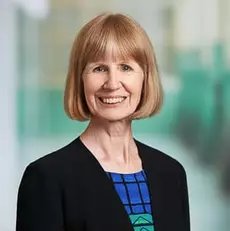Capturing Translation Processes (CTP)
The main focus of this applied linguistics project is the question of what translators really do when they translate and how they do it.
The large-scale longitudinal study, Capturing Translation Processes, is seeking answers to the following questions:
- What are the differences between the strategies and practices of beginner, novice, and professional translators?
- How conscious are translators with different levels of experience of their strategies and practices?
- Which translation strategies and practices, if any, are unique to particular language combinations?
- How much of the translation process is actually devoted to revision and how does this change as translators gain experience?
- How do translators with different levels of experience compensate target language competence when translating into their second language?
- In what ways are translation processes in the workplace comparable to translation processes in a controlled setting?
Project details
Capturing Translation Processes, funded by SNF, used a multi-method approach to record translation processes of students, novices and experienced professionals at different points in their careers.
This approach allows us to make comparisons
- across different types of processes, language combinations and directions
- within individuals over time and across tasks
- between groups of translators.
Project financing: DORE/SNF
Grant: CHF 420,500
Project start: 04/01/2009
Project end: 12/31/2012
Project partner: CLS Communication (global language service provider)
Methods
In order to be able to triangulate data of each process, the following methods are used during the data collection phase:
- SCR - Screen recording (Camtasia Studio)
- KSL - Key Stroke Logging (InputLog)
- ET - Eye-tracking (Tobii T60)
- RVP - Retrospective verbal protocols
- Online surveys
- Questionnaires
- Interviews
Corpus
- results from three surveys of research behavior (96 students, 14 instructors, 110 freelance professionals, 32 staff translators)
- background information from over 200 participants, controlled recordings of over 300 processes (KSL, SCR, RVP); 121 English-German, 101 German-English (since 2007); 37 French-German, 37 German-French (since 2009); 13 Italian-German, 21 German-Italian (since 2009)
- eye-tracking records of over 100 processes
- over 650 screenshot recordings of semester assignments
- over 500 hours of screenshot recordings of workplace processes
- over 220 transcriptions of screen events and RVPs of short translation processes (i.e. mostly 15 minutes each)
Research results
Comparisons have been made between translation students at various stages in their training and professional translators; between different language combinations; between translation into the translator’s first or second languages; and between processes at the workplace and in a controlled setting. Some of the main research results are summarized below, while the Capturing Translation Processes Final Report includes further details about the findings.
- Professionals indicate that they have a wider repertoire of strategies to cope with translation problems than students do, and a clearer self-concept of their roles.
- Most professionals use a wide range of resources and are more discerning than students about which resource they use for which type of problem.
- Many of the findings of the project have direct implications for translation teaching and professional development, including an increased focus on the process in order to heighten translators’ awareness of their own practices and decision-making.
- One of the unexpected findings from the workplace recordings concerned disturbances to the translation process and coping strategies to deal with them. A follow-up study explores the cognitive and physical ergonomics of professional translation.
Publications and presentations
Team
Principal investigator

Prof. Dr. Maureen Ehrensberger-Dow
Co-investigators

Dean School of Applied Linguistics
Team members
-
Operational manager of the Translation Studies ...
Former team members
Prof. Dr. Alexander Künzli
ehemals: Institut für Übersetzen und Dolmetschen
jetzt: Universität Genf, Fakultät für Übersetzen und Dolmetschen
Professor für Übersetzungswissenschaften
+41 223 79 93 88
alexander.kuenzli@unige.ch
Gabriel Zuberbühler
Ehemaliger Doktorand und wissenschaftlicher Assistent